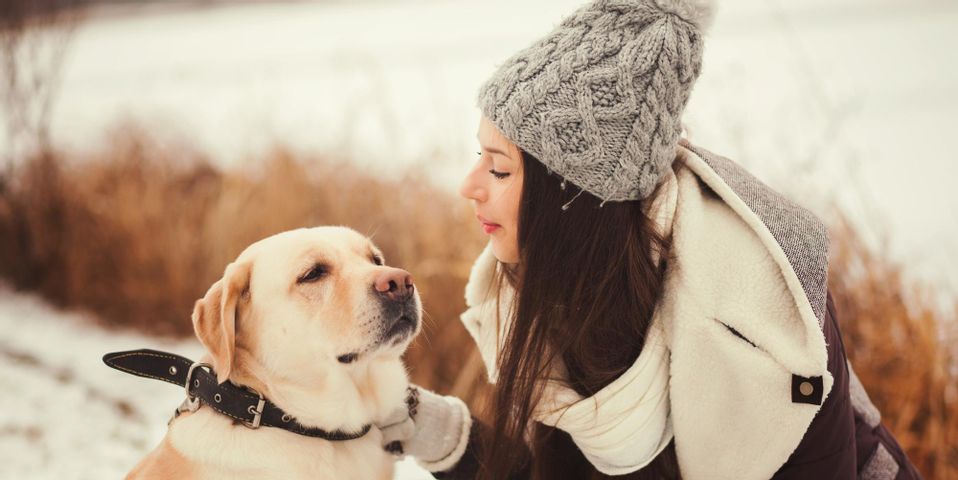
Wintertime can be difficult for animals. With fallen snow, bright decorations, and ever-changing smells, it can be easy for animals to find themselves in trouble around the holidays. Fortunately, by knowing how to prevent problems and taking steps to keep your pet safe, you can avoid the need for emergency vet visits. Here are a few common winter health issues pets can be faced with, and how to prevent unnecessary trips to the animal hospital.
How to Keep Pets Safe This Winter
1. Frostbite
Frostbite occurs when your pet’s paws or skin are subjected to cold, wet weather for too long. The tissue can die, turn black, and expose your pet to a dangerous infection. Frostbite occurs in stages but can happen very quickly, especially anytime the weather drops below freezing.
To prevent frostbite in your animal, limit outdoor activities as much as possible when it is cold outside. Never leave pets unattended outside during the winter, and consider dressing your animal in a sweater or booties to protect their skin and paws on a cold winter’s day. Anytime you notice hard, pale, blistering, or blackened skin on your pet, take them to an animal hospital to have the wound inspected and treated.
2. Upper Respiratory Infection
 Dogs and cats can develop upper respiratory infections during the winter. As a result, they can develop a runny nose, cough, or watery eyes, and can struggle to fall asleep or rest. If you suspect that your animal has an upper respiratory infection, bring them to an animal hospital to have their symptoms checked. A veterinarian can prescribe antibiotics to clear out the infection. They may also benefit from sleeping with a humidifier and consuming extra water.
Dogs and cats can develop upper respiratory infections during the winter. As a result, they can develop a runny nose, cough, or watery eyes, and can struggle to fall asleep or rest. If you suspect that your animal has an upper respiratory infection, bring them to an animal hospital to have their symptoms checked. A veterinarian can prescribe antibiotics to clear out the infection. They may also benefit from sleeping with a humidifier and consuming extra water.
3. Hypothermia
Hypothermia can occur when a pet’s core temperature falls below 95 degrees Fahrenheit. When a pet gets too cold, it may start to shiver or may appear weak. Unfortunately, hypothermia can make an animal tired, which can increase their risk of suffering catastrophic injury outdoors. Pay attention to the way your animal responds when they are outside and bring them inside to a warmer location anytime you feel they are cold. Never allow an animal to sleep outside overnight during the winter, since this can increase their risk of hypothermia.
If you suspect that your animal is suffering from any health issues this winter, turn to the team at Elyria Animal Hospital. With a commitment to offering fast, efficient, and compassionate care to your pets, this trusted veterinary clinic can help your animal to look and feel their best. To find out more about how they can help, visit their website, or give their office a call at (440) 365-3818.
About the Business
Have a question? Ask the experts!
Send your question

